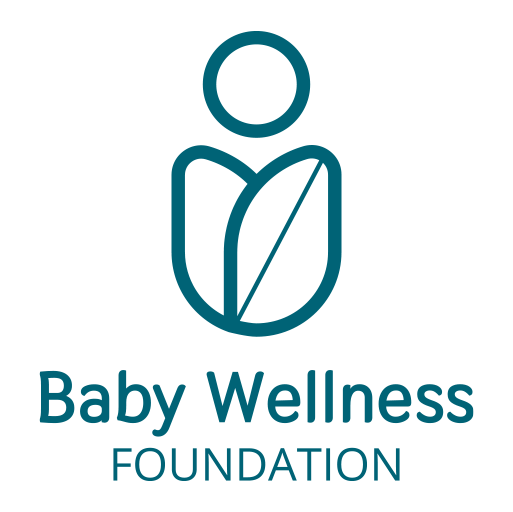La buona nanna
Chapter 1 – All the Benefits of a Good Sleep
There is a direct correlation between sleep duration and a child’s bone growth. Thanks to specific mechanisms—such as the release of growth hormone (somatotropin), a molecule that signals cells to multiply—bones grow in length and the skeletal diameters expand. This hormone is produced by the pituitary gland, located at the base of the skull, and it is most active during sleep.
In 2011, a research group at Emory University in Atlanta observed (1) that there are specific periods when children’s height increases more rapidly—true growth spurts—which coincide with times when children sleep longer during the day and take more naps. Naturally, this doesn’t mean one can force a child to sleep more to make them taller. The maximum height a person can reach is determined by their genes, and you cannot force sleep on someone who doesn’t need it. However, ensuring restful and sufficient sleep certainly helps children grow and express their full genetic potential.
Sleep also regulates the balance of another hormone: insulin, which controls sugar metabolism. This is particularly important in early childhood, a time when the body is learning to manage its energy resources. Children who get less sleep than they need during their first years of life are at greater risk of developing type 2 diabetes and obesity as they grow (2).
Good sleep is also essential for the development of a child’s immune system. A lack of sleep leads to a reduced ability to fight infections and an excessive production of cytokines — molecules that contribute to the onset of inflammatory diseases (3).
And what about brain development, cognitive abilities, memory, language learning, and emotional regulation? It’s something adults experience too: after a good night’s sleep, we feel more relaxed and clear-minded, our memory works better. For the newborn’s brain—which is still developing and refining the network of connections between its various areas—sleep plays an even more crucial role. Good sleep is a cornerstone of baby wellness!
In 2015, a research team from Stanford University in California (4) found that babies aged 6 to 12 months who learned a new game and then napped for at least 30 minutes within four hours were more likely to remember what they learned the next day, compared to those who stayed awake for longer than four hours after learning the game. According to experts, this indicates that sleep helps consolidate short-term memories. That’s why babies, who constantly learn new things, don’t just need nighttime sleep but also naps throughout the day. Just think how challenging it is for them to learn language, understand words, and grasp the abstract structure of speech. Naps play a key role in supporting this task as well (5).
Subscribe to the newsletter
Be the first to receive the latest news from the Baby Wellness Foundation!
When we talk about good sleep, however, it’s important to consider not only the number or length of naps, but also their quality. A well-rested child is calmer and better able to manage emotions. A tired child is more irritable and prone to tantrums. Some studies suggest that sleep quality affects children’s behavior and emotional development not just in the short term, but even years later.
A group of psychologists in Birmingham, UK (6), followed more than 1,600 families over two years, interviewing parents about their child’s sleep hours, difficulties falling asleep, and night awakenings during infancy, as well as the child’s behavior at two years old. The study found a correlation between sleep disturbances and later behavioral issues.
However, when analyzing this kind of correlation, we must be careful to distinguish cause and effect: is sleep deprivation causing difficult behavior, or are children with more intense temperaments naturally more prone to sleep disturbances—and later, behavioral challenges? Or is there perhaps a common cause, such as an unsettled family environment, that contributes to both problems?
(1) M. Lampl, M. L. Johnson, “Infant Growth in Length Follows Prolonged Sleep and Increased Naps”, Sleep 34 (2011) pp 641-650
(2) A. L. Miller, J. C. Lumeng, M. K. LeBourgeois, “Sleep Patterns and Obesity in Childhood”, Curr. Opin. Emdocrinol. Diabetes Obes. 22 (2015) pp 41-47
(3) H. Moldofsky, “Sleep and the Immune System”, International Journal of Immunopharmacology 17 (1995) pp 649-654
(4) S. Seehagen, C. Konrad, J. Herbert, S. Schneider, “Timely Sleep Facilitates Declarative Memory Consolidation in Infants”, PNAS 112 (2015) pp 1625-1629
(5) R. Gomez, R. R. Bootzin, L. Nadel, “Naps Promote Abstraction in Language-Learning Infants”, Psycol. Sci. 17 (2006) pp 670-674
(6) I. Morales-Munoz, S. Lemola et al, “Parent-reported early sleep problems and internalising, externalising and dysregulation symptoms in toddlers”, BMJ Pediatrics Open 4 (2020) e000622
Leggi le opinioni di...
Leggi le opinioni su questo articolo da parte di fonti autorevoli in campo scientifico o di aziende specializzate.

No comment yet, add your voice below!